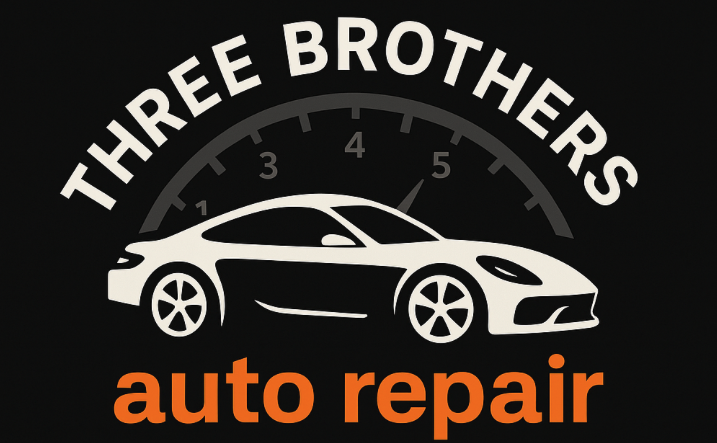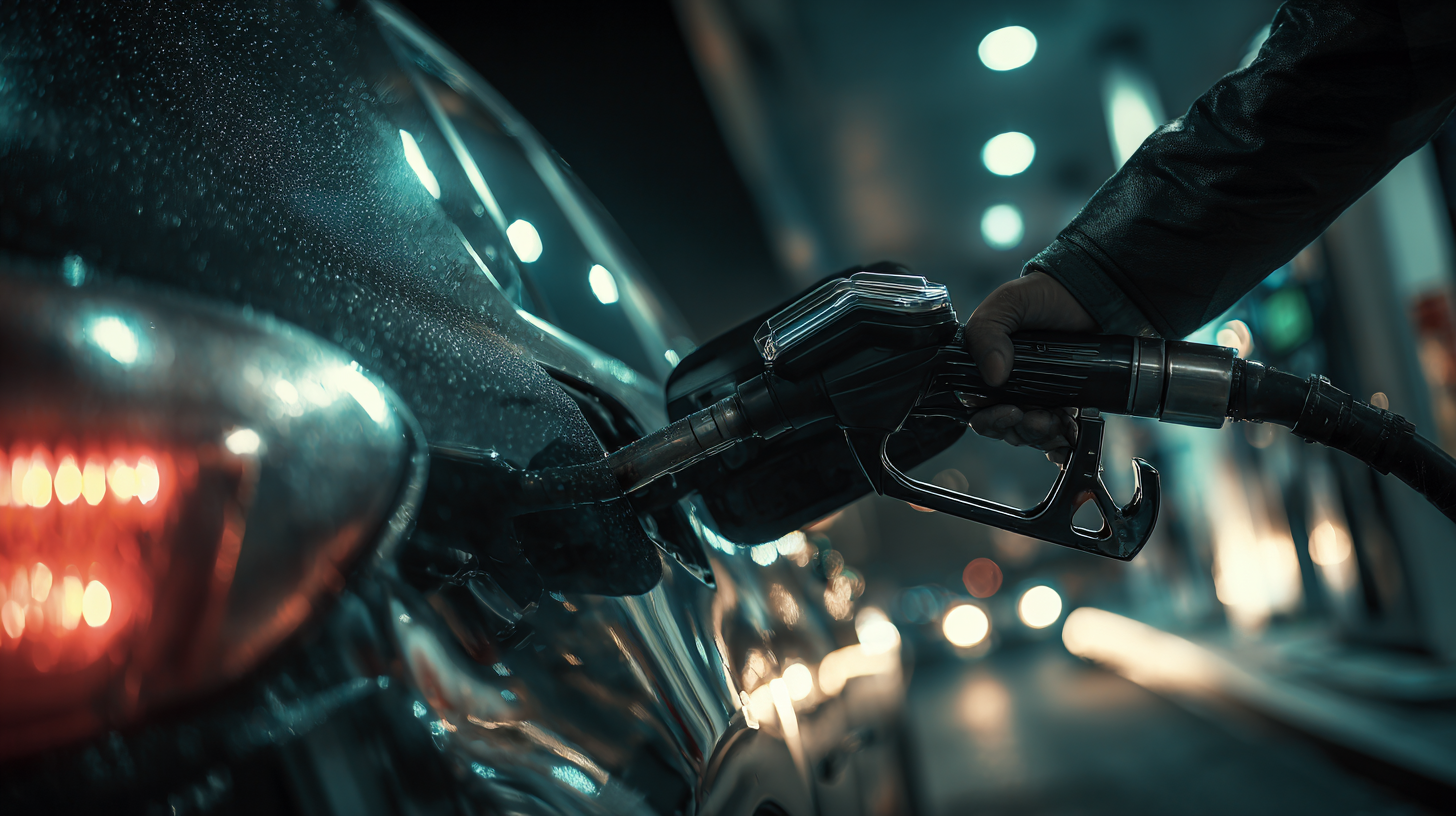In our experience at Three Brothers Auto Repair, a common question we hear from drivers is whether it’s safe to pump gas while the engine is running. On a sweltering summer day or a freezing New Jersey winter night, it might be tempting to leave the car on for air conditioning or heat. However, gas stations post clear “Turn Off Engine” signs for a reason. Gasoline is highly flammable in vapor form, and any spark or hot surface can ignite those fumes. Even though modern cars rarely burst into flames at the pump, the risk does exist — and the consequences could be catastrophic. We’ll explain why it’s important to shut off your engine when refueling, what the laws say, and what could go wrong if you don’t.
Contenido
- Why You Should Turn Off Your Engine While Refueling
- Laws and Regulations: What the Rules Say
- Consequences of Fueling with the Engine On
- Engine Off vs. Engine On: A Quick Comparison
- Stay Safe at the Pump
- Is it safe to pump gas while your car is running?
- Is it legal to pump gas with an engine running?
- What happens if you forget to turn off the engine while filling gas?
- Do you need to turn off the engine to refuel?
Why You Should Turn Off Your Engine While Refueling
Safety is the number one reason to shut off your vehicle’s engine before pumping gas. Gasoline vapors ignite very easily, and a running engine creates multiple potential ignition sources:- Sparks & Electrical — The vehicle’s ignition system and electronics can produce sparks. A stray spark from a faulty plug wire or other component is enough to ignite fuel vapors.
- Hot Engine Parts — The engine and exhaust components run extremely hot (hundreds of degrees). Gasoline can spontaneously ignite at roughly 500°F, which your catalytic converter or muffler can easily exceed. Vapors are heavier than air and tend to sink, so fuel fumes could reach those hot parts under the car — potentially causing ignition.
- Static Electricity — Getting in and out of your car can build up static charge on your body. If you then touch the pump nozzle and discharge that static, it can spark a fire in the presence of fuel vapors. Avoid re-entering your vehicle during refueling, or touch a metal surface to ground yourself first if you must.
Laws and Regulations: What the Rules Say
There are strict safety guidelines and even laws to back up the “engine off” rule. If you look at any gas pump, you’ll see warnings telling you to shut off your engine while refueling. These rules aren’t just suggestions; they’re enforced for everyone’s safety:- Fire Codes: Most states adopt the International Fire Code, which explicitly requires “engines of vehicles being fueled shall be shut off during fueling.” That means pumping gas with the engine on violates fire safety regulations virtually everywhere.
- New Jersey Law: Here in New Jersey, it’s not only unsafe — it’s illegal to fuel a vehicle while the engine is running. NJ is a full-service state, so only attendants pump gas. By law, attendants cannot fill your tank if your engine is on. We follow this rule every day at our shop and encourage you to do the same.
- Station & Environmental Rules: Even where self-service is allowed, gas station operators enforce the engine-off policy to avoid accidents and liability. Plus, separate anti-idling laws prohibit unnecessary engine running to cut down on emissions (for instance, NJ limits idling to 3 minutes). So there’s also an environmental and legal incentive to shut your car off.
Consequences of Fueling with the Engine On
What’s the worst that could happen if you ignore the warnings? Here are some potential consequences of leaving your engine running while pumping gas:- Fire Hazard: While uncommon, fuel vapors can ignite and cause a dangerous fire or explosion at the gas pump. The aftermath could be severe injuries and major property damage.
- Check Engine Light: Fueling with a running engine can confuse your vehicle’s vapor-recovery system. The car might detect what it thinks is a vapor leak (because the gas cap is off) and trigger a “Check Engine” warning on your dashboard. Prevent this by turning the engine off (and always tightening the gas cap after refueling).
- Legal Trouble: Because it’s against safety regulations (and outright illegal in NJ), you could get a warning or a fine for pumping gas with the engine on. If a fire or accident did occur, having ignored the rules could also complicate insurance claims.
- Wasted Fuel & Pollution: Leaving your car idling during a fill-up burns fuel unnecessarily, adding needless pollution. This wastes gas and increases emissions. In places with anti-idling laws, you might even be violating those rules by letting the engine run too long.
Engine Off vs. Engine On: A Quick Comparison
Below is a side-by-side comparison of refueling with the engine turned off versus leaving it running:| Aspect | Engine OFF (Safe & Recommended) | Engine ON (Risky & Discouraged) |
| Fire Safety | Virtually no risk — no active sparks or hot parts that could ignite fuel vapors. | Elevated fire risk — a running engine has sparks and very hot surfaces that could ignite gasoline fumes. Rare, but not impossible. |
| Legality | Fully compliant with safety laws and codes (most states require engines off). In NJ, attendants won’t fuel a running vehicle. | Usually against the law — violates fire codes and state regulations. You risk fines or being refused service for leaving the engine on. |
| Vehicle Health | No adverse effect on the vehicle — refueling with the engine off is how cars are designed to be fueled (no issues). | Can confuse your car’s systems — refueling with the engine on may trigger an EVAP system error (check-engine light). Also adds unnecessary wear from idling. |
| Fuel & Emissions | No unnecessary idling — you save fuel and avoid excess emissions (staying within anti-idling rules). | Wastes fuel and produces needless pollution. Idling too long at the pump could violate anti-idling laws in some areas. |
| Convenience | Minor inconvenience — you might lose a bit of cabin heating or cooling for a few minutes, but the discomfort is brief. | Small comfort gain — you stay warm or cool while fueling. However, this convenience isn’t worth the major safety and legal risks, considering a typical refuel takes only about 5 minutes. |
Stay Safe at the Pump
It is not safe to pump gas with the engine on — and it’s against the rules for good reason. We understand the temptation (no one likes losing their A/C or heat on a harsh day), but those few minutes of comfort aren’t worth risking a fire or a fine. At Three Brothers Auto Repair, our priority is keeping drivers safe, so we always advise turning off your engine before refueling. It’s a simple step that dramatically reduces risk. Gas stations already have plenty of inherent hazards (flammable fuel, moving vehicles, etc.). Eliminating one major hazard, a running engine, makes the whole situation safer. So next time you pull into a New Jersey gas station, remember to put your car in park and shut off the ignition before the attendant starts pumping. You’ll be fueling up with peace of mind, knowing you’ve done the right thing to stay safe.-
Is it safe to pump gas while your car is running?
No, it’s unsafe. Gasoline vapors can ignite if they come into contact with heat or electrical sparks from the running engine. Always turn off the engine before refueling.
-
Is it legal to pump gas with an engine running?
In most states, it’s against safety regulations to refuel with the engine running. Gas stations post warning signs reminding drivers to switch off their vehicles before pumping.
-
What happens if you forget to turn off the engine while filling gas?
Usually nothing dramatic happens, but it increases the risk of fire or explosion due to vapor ignition. It also causes fuel system pressure issues and can trigger a check engine light in some vehicles.
-
Do you need to turn off the engine to refuel?
Yes. Turning the engine off is a simple precaution that helps prevent fuel vapor ignition and ensures compliance with station safety standards.

